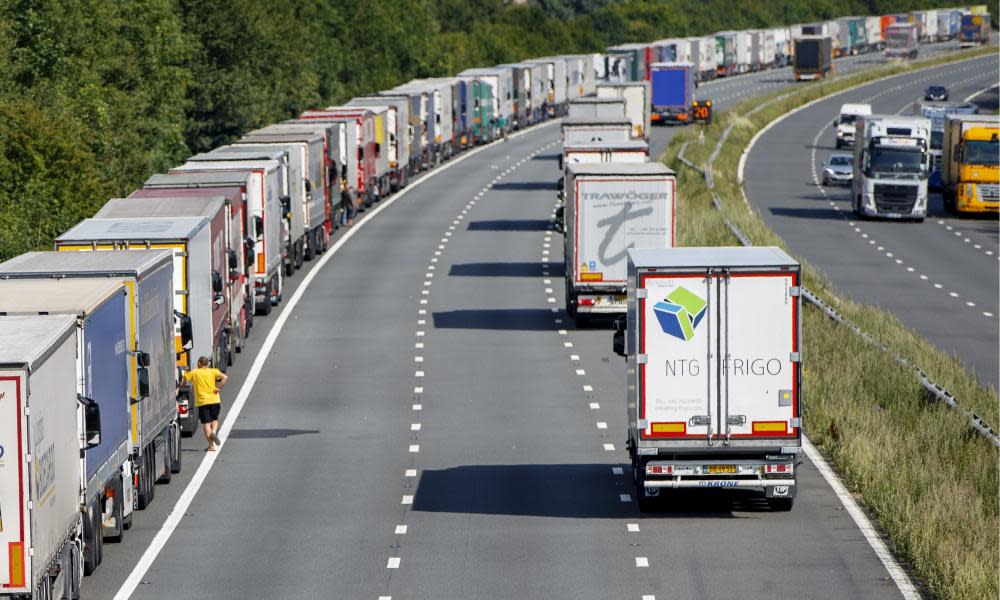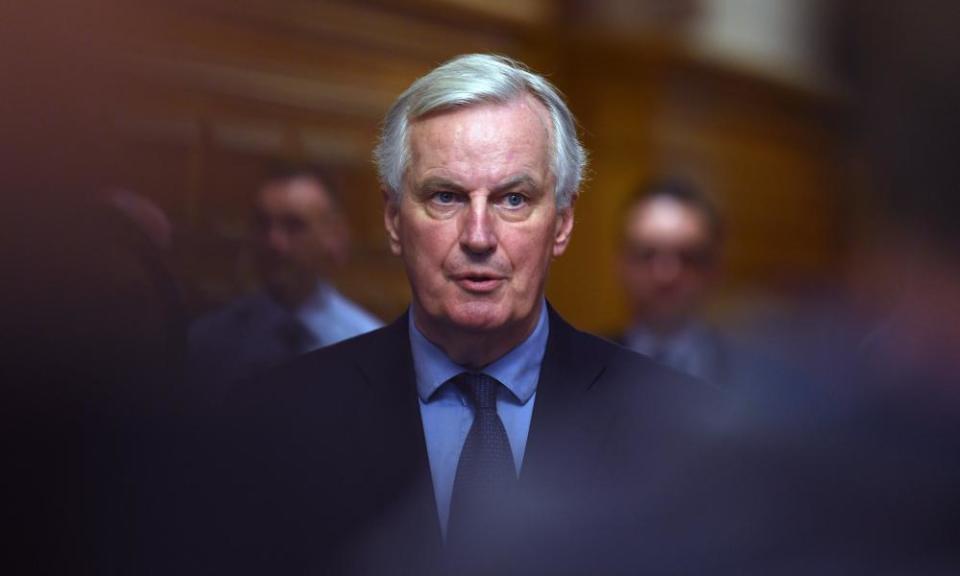Eurotunnel warns on Tory plans for post-Brexit customs

Eurotunnel has issued a stark warning that UK businesses and consumers will face serious economic costs if the government adopts either of the post-Brexit customs models being considered by Theresa May’s government.
The intervention by the Channel tunnel operator, coupled with a claim by the company that the necessary technology to prevent delays at the borders may not be ready until several years after Brexit, will add to growing pressure on Theresa May to face down hardline Brexiters by keeping the UK inside the EU customs union.
With just weeks to go until the prime minister faces a series of crucial votes on Brexit in the House of Commons, the head of HM Revenue and Customs, Jon Thompson, sent shockwaves through Whitehall last week when he revealed that British companies would face an additional bill of around £20bn a year in extra bureaucracy if the so-called “max fac” border option, backed by the leading Brexiters Boris Johnson and Michael Gove, was adopted.
Eurotunnel, however, believes that while “max fac” would be the most costly for business and consumers, the other option – the “customs partnership” favoured by May, under which the UK would collect tariffs for Brussels – would also mean extra checks and bureaucracy.
Sources close to the company say they have been making the case to ministers for months that any change that causes hold-ups will seriously disrupt businesses on both sides of the Channel that rely on the assumption that goods can be delivered quickly and on time.
John Keefe, Eurotunnel’s director of public affairs, said both options would cause delays and mean additional costs. “Eurotunnel transports 1.6 million trucks, carrying £120bn worth of goods across the Channel each year,” he said.
“Those goods feed industry, retail, and consumers and are delivered just in time, just in sequence and just when we need them. Additional checks at the border would delay the speed and frequency of delivery, result in wastage and lost production, and add to costs for consumers.”
He added that technology to prevent delays already existed, but said nothing could be planned or built until the UK and EU had decided on their future trading arrangements. Only then could precise specifications for checking goods be determined, equipment built, staff trained, and people educated about the new situation.
“The important part for industry is having a clear specification of what will be needed – and we don’t expect that to be agreed until the future trading arrangements are settled, during the transition period [from April 2019 to the end of 2020]. But even once industry has a specification, it could still take several years to build it, develop the necessary infrastructure, recruit and train new staff and educate transporters from across Europe in its use.”
Eurotunnel’s concerns have come to light before a series of votes on Brexit next month when the EU withdrawal bill returns to the Commons. Cross-party groups of MPs who are fighting to avoid a hard Brexit believe they have the numbers to outflank the government on several amendments passed in the Lords, including one that would require ministers to work to keep the UK in the customs union.

Meanwhile, May was accused yesterday by the EU’s chief Brexit negotiator, Michel Barnier, of playing “hide and seek” in the talks and seeking to pin the blame for the damaging consequences of Brexit on Brussels.
The speed of the talks needed to be accelerated, Barnier said, adding that without a solution to the issue of the border on the island of Ireland, there would be no overall deal, or any transition period to shield UK companies from a cliff-edge Brexit on 29 March 2019.
“If the United Kingdom would like to change its own red lines, it will have to tell us. Earliest would be best,” he said. “And, of course, we are open. There is no ideology or dogmatism on our part. The European council has made it clear that the UK can change its mind. We simply ask for clarity. Because to negotiate effectively, you must know what the other party wants. A negotiation cannot be a part of hide and seek.”
He added: “We need realistic proposals from the UK. Proposals that respect the institutional architecture and the integrity of the European Union.”
Labour is also under growing pressure to take a stronger anti-Brexit line. This weekend supporters of Jeremy Corbyn in the leftwing campaign group Momentum are piling pressure on the Labour leadership to give members a debate and vote on Labour’s Brexit policy – in a move that will further expose the party’s deep divisions over Europe.
Several prominent figures on the left have told the Observer that it will be unacceptable – and reminiscent of the worst elements of Tony Blair’s leadership – if policy is decided behind closed doors. They are demanding that Brexit is fully discussed and voted on by delegates at this autumn’s party conference in Liverpool in September. The gathering will take place before any vote by MPs in parliament on the outcome of negotiations between Theresa May and Brussels.
On Saturday, Liberal Democrat leader Vince Cable accused Labour of siding with the Tories on Brexit by failing to oppose it more strongly. “We are in the curious situation where the leader of the opposition refuses to oppose the Conservatives on the biggest issue facing the UK in decades,” he said. “If the Labour leadership joined us, we could defeat the Conservatives’ chaotic hard Brexit, but instead he is helping them at virtually every opportunity.”

 Yahoo News
Yahoo News 
